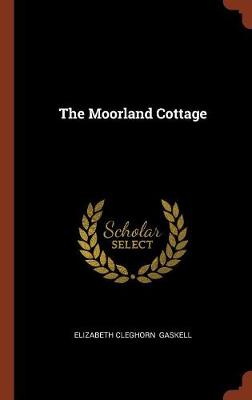The Moorland Cottage

As seen:
Reviews
St Just Thursday Evening Reading Group 1st June 2023.
The Moorland Cottage. Elizabeth Gaskell.
Most of the reading group said they enjoyed this book: “a gentle polemic, that addressed the vulnerability and dependence of women in the family, in the home and in society”, one reader said. It was generally appreciated as a shortish, easy to read, classic novel, very much of its time. One other reader rather disliked it on these grounds, finding it a hackneyed story.
We discussed the inequality Mrs Brown displayed in the treatment of her children, always favouring her son Edward over her daughter Maggie, despite his obvious faults, his crimes, and eventually his death. This was more extreme, we thought, than the times warranted – women might not have been considered to need much education, their role being mainly to look after their families – but in this case Mrs Brown’s attitude to Maggie was downright unpleasant. However, Maggie had her religious faith to sustain her, and numerous helpful friends, including Erminia, the squire’s niece. Also when the squire tried to blackmail Maggie by promising to rescue Edward from the forces of the law if she would renounce her relationship with Frank, his son, Maggie demonstrated a higher moral tone than the squire by declining his request, saying that Frank should decide himself whether his relationship with Maggie was suitable or not, and leaving the matter of Edward’s rescue to the squire’s own conscience.
The fire on the ship taking Maggie and Edward to America was very dramatic, we thought, as also was Frank’s sudden appearance on it as a passenger, and his positively heroic rescue of Maggie – highly cinematic material, we considered.
One reader commented that there were a lot of emotions demonstrated in this book, which surprised her a little, having expected a typical Victorian “stiff upper lip” attitude about personal matters.
We also talked a bit about some of the book’s individual words and paragraphs. The word “elastic”, for instance, appears twice on the first page, and we decided that this was being used as an adjective, meaning something like “stretchy”, rather than as a noun referring to fabric. “Mizzling” was also noted, as describing north country rain – to us it sounded remarkably Cornish. The last paragraph of the book, concerning the deceased Mrs Buxton, was thought by some readers to be a curious way to finish the story.
This was quite a short discussion and a fairly short book, but it was popular with most of the group and we agreed to read some more classics in the future.






